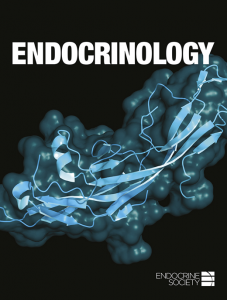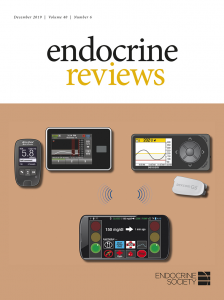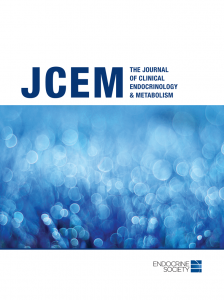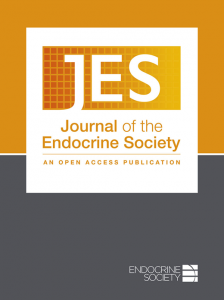For the fifth year in a row, Endocrine News spoke with editors from Endocrine Society journals to get the scoop on the top endocrine discoveries of 2019. Here is part 5 of Eureka! 2019.
Endocrine Reviews Associate Editor Anna Gloyn, DPhil, professor of molecular genetics & metabolism and Wellcome Trust Senior Fellow in Basic Biomedical Science at the University of Oxford in the United Kingdom, finds “Genetic Risk Scores for Diabetes Diagnosis and Precision Medicine,” by Mahajan A., et al., especially compelling.
“One of the most exciting developments in the area of genetics of diabetes has been the implementation of ‘soft-clustering’ approaches to gain mechanistic inference at type 2 diabetes genome-wide association studies (GWAS) loci.”
Published in July, this study provides ample support for the idea that polygenic scoring used in precision medicine could translate to effective targeted therapy in diabetes.
“One of the most exciting developments in the area of genetics of diabetes has been the implementation of ‘soft-clustering’ approaches to gain mechanistic inference at type 2 diabetes genome-wide association studies (GWAS) loci,” Gloyn says. “In 2018, two groups independently developed approaches to cluster T2D-risk variants based on their impact on relevant physiological traits. This year in Endocrine Reviews, the authors of these papers put together an informative article covering the potential of this approach to inform on diabetes diagnosis and aid precision medicine.”
Below are the studies from the “Eureka 2019!” article in the December Endocrine News:

Sex Differences in Inflammatory Responses to Adipose Tissue Lipolysis in Diet-Induced Obesity,” Singer, K., et. al. February 2019
“Fibroblast Growth Factor-21 Controls Dietary Protein Intake in Male Mice,” Ryan, K.K., et. al. fMay 2019
“The Gut Microbiome Derived from Anorexia Nervosa Patients Impairs Weight Gain and Behavioral Performance in Female Mice,” Sudo, N., et. al. October 2019
“Neonatal Estrogen Causes Irreversible Male Infertility via Specific Suppressive Action on Hypothalamic Kiss1 Neurons,” Tsukamura, H., et. al. May 2019
“Transgenerational Bisphenol A Causes Deficits in Social Recognition and Alters Postsynaptic Density Genes in Mice,” Rissman, E.F., et. al. August 2019
“Gestational Diabetes Adversely Affects Pancreatic Islet Architecture and Function in the Male Rat Offspring,” Dolinsky, V.W., et. al. August 2019

“Genetic Risk Scores for Diabetes Diagnosis and Precision Medicine,” Mahajan A., et al. July 2019

“Lipid Metabolism Links Nutrient-Exercise Timing to Insulin Sensitivity in Men Classified as Overweight or Obese,” Wallis G.A. and Gonzalez J.T., et. al. October 2019
“DNA Methylation of Tumor Suppressor Genes in Pituitary Neuroendocrine Tumors,” Picó A., et. al. April 2019

“Depression in Nonclassical Hypogonadism in Young Men,” Korenman, S.G. November 2018
“Magnetic Resonance Imaging Reveals Human Brown Adipose Tissue Is Rapidly Activated in Response to Cold,” Steinberg, G.R. and Morrison, K.M., et. al. October 2019
“E-Cigarette Exposure Delays Implantation and Causes Reduced Weight Gain in Female Offspring Exposed In Utero,” Caron K.M., et. al. October 2019
New England Journal of Medicine
“An Anti-CD3 Antibody, Teplizumab, in Relatives at Risk for Type 1 Diabetes,” Herold, K.C., et. al. August 2019

